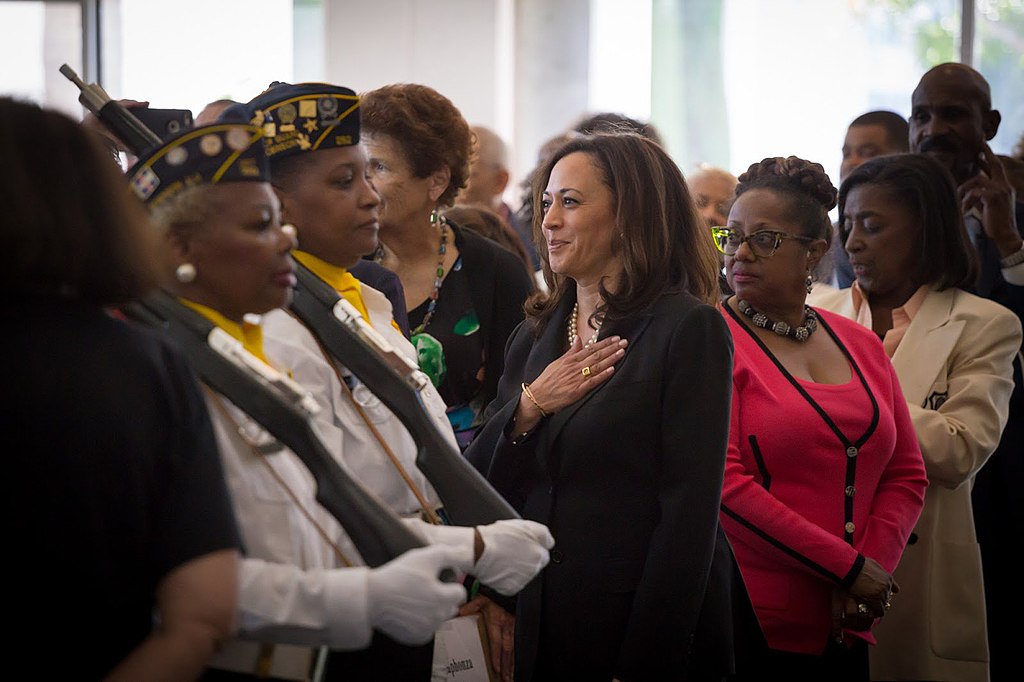Kamala Harris' campaign chair, Jen O’Malley Dillon, has pointed to the media's portrayal of the vice president as a key factor in her landslide loss in the recent election. Dillon, who played a prominent role in Harris’ campaign, alleged that the media’s depiction of Harris as “too scared to do interviews” created an unfair narrative that undermined her leadership image.
Harris’ loss, widely analyzed by political pundits, has sparked debates about her campaign strategy, media relations, and public perception. Dillon’s comments shed new light on the internal challenges faced by the Harris camp as they navigated what many described as one of the most contentious election cycles in recent history.
While Harris’ supporters argue that her achievements were overlooked in favor of hyper-critical coverage, detractors maintain that her performance during key debates and limited media appearances contributed significantly to her defeat.
Impact of Media Representation on Harris’ Campaign
Dillon highlighted what she called a systematic bias in the media’s approach to Harris’ campaign. She claimed that Harris was often portrayed as evasive or unwilling to engage with journalists, a characterization that Dillon vehemently disputes.
“This portrayal created an impossible uphill battle for us,” Dillon said in a post-election interview. “Kamala Harris is a leader who has consistently shown her ability to tackle tough questions and advocate for policies that matter to Americans.”
Critics, however, have pointed to Harris’ limited availability for interviews and press conferences as evidence of a lack of transparency. Some also criticized her campaign’s failure to address these perceptions head-on, allowing the narrative to take root among undecided voters.
Analysts argue that Harris faced unique challenges as a woman of color in the political arena, where double standards in media coverage often amplify scrutiny. Despite these hurdles, Dillon stressed that the vice president remained committed to connecting with voters, particularly in battleground states.
Social Media Reacts to Campaign Chair’s Comments
Dillon’s remarks have ignited passionate reactions on social media, with users debating whether Harris’ loss was due to media bias, campaign missteps, or a combination of factors.
- @PoliticoWatcher99: “Blaming the media is an easy way out. Kamala didn’t connect with voters, plain and simple.”
- @EqualityMatters2024: “The double standards are glaring. If Kamala were a man, this wouldn’t even be a topic.”
- @TruthFirst87: “Her campaign never addressed real issues. The media didn’t help, but Harris sealed her own fate.”
- @VoterForChange34: “Dillon is right. The media has always been harsher on Harris. It’s time for introspection.”
- @FutureIsFemale01: “Media bias is real, and Kamala Harris is yet another victim of its destructive influence.”
- @IndependentThinker45: “Excuses won’t fix what went wrong. Harris’ campaign needs to take responsibility for its own failures.”
Lessons for Future Campaigns
Dillon’s statements highlight broader concerns about the role of media in shaping electoral outcomes. She urged future campaigns to prioritize strategies that counteract biased narratives while ensuring candidates maintain direct lines of communication with voters.
As the Democratic Party reflects on Harris’ defeat, Dillon’s insights underscore the importance of addressing media challenges early and building resilient campaigns that can withstand public scrutiny. For now, the debate continues about whether Harris’ loss was an inevitability or the product of a flawed electoral system.



 Russia Signals Openness to U.S. Security Guarantees for Ukraine at Geneva Peace Talks
Russia Signals Openness to U.S. Security Guarantees for Ukraine at Geneva Peace Talks  Pentagon Leaders Monitor U.S. Iran Operation from Mar-a-Lago
Pentagon Leaders Monitor U.S. Iran Operation from Mar-a-Lago  Argentina Senate Approves Bill to Lower Age of Criminal Responsibility to 14
Argentina Senate Approves Bill to Lower Age of Criminal Responsibility to 14  EU Urges Maximum Restraint in Iran Conflict Amid Fears of Regional Escalation and Oil Supply Disruption
EU Urges Maximum Restraint in Iran Conflict Amid Fears of Regional Escalation and Oil Supply Disruption  Trump to Address Nation as U.S. Launches Strikes in Iran, Axios Reports
Trump to Address Nation as U.S. Launches Strikes in Iran, Axios Reports  Zelenskiy Urges Change in Iran After U.S. and Israeli Strikes, Cites Drone Support for Russia
Zelenskiy Urges Change in Iran After U.S. and Israeli Strikes, Cites Drone Support for Russia  U.S.-Israel Strike on Iran Escalates Middle East Conflict, Trump Claims Khamenei Killed
U.S.-Israel Strike on Iran Escalates Middle East Conflict, Trump Claims Khamenei Killed  Israel Declares State of Emergency as Iran Launches Missile Attacks
Israel Declares State of Emergency as Iran Launches Missile Attacks  Trump Announces U.S. Strikes on Iran Navy as Conflict Escalates
Trump Announces U.S. Strikes on Iran Navy as Conflict Escalates  Trump Media Weighs Truth Social Spin-Off Amid $6B Fusion Energy Pivot
Trump Media Weighs Truth Social Spin-Off Amid $6B Fusion Energy Pivot  Trump Floats Ted Cruz for Future U.S. Supreme Court Nomination
Trump Floats Ted Cruz for Future U.S. Supreme Court Nomination  Australian PM Calls Alleged Western Australia Terror Plot “Deeply Shocking” After Arrest
Australian PM Calls Alleged Western Australia Terror Plot “Deeply Shocking” After Arrest  Trump Floats “Friendly Takeover” of Cuba as Rubio Reportedly Engages in Talks
Trump Floats “Friendly Takeover” of Cuba as Rubio Reportedly Engages in Talks  Trump Warns Iran as Gulf Conflict Disrupts Oil Markets and Global Trade
Trump Warns Iran as Gulf Conflict Disrupts Oil Markets and Global Trade  Trump Says U.S. Combat Operations in Iran Will Continue Until Objectives Are Met
Trump Says U.S. Combat Operations in Iran Will Continue Until Objectives Are Met  UK Accepts U.S. Request to Use British Bases for Defensive Strikes on Iranian Missiles
UK Accepts U.S. Request to Use British Bases for Defensive Strikes on Iranian Missiles  Germany and China Reaffirm Open Trade and Strategic Partnership in Landmark Beijing Visit
Germany and China Reaffirm Open Trade and Strategic Partnership in Landmark Beijing Visit 































